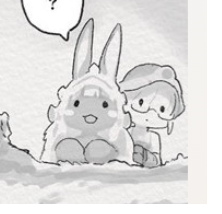Does anyone else feel this way or did when they first self-diagnosed?
deleted by creator
I’m at a stage where I definitely have this in the back of my head. Considering how I’ve always felt excluded, different, got bullied, etc…I developed a strong inclination for the underdog. I prefer diverse settings with authentic people that show their differences proudly. I feel uncomfortable in settings where people conform and appear very similar. I also do not like competitive environments, rather I prefer collaborative ones. This clashes with my underlying us vs. them mentality, but it’s hard to not have that mentality when they create it.
I don’t go to places and think, “OMG, my people are better, and those people are different and suck.” They’re the ones that labelled us autistic, disabled, and weird. They’re the ones that find the marginalized people to bully when they feel inadequate with themselves. So, my divisions is more of a protective factor because they’re the ones that create the divide, and we need to survive. In the end, the “us” in my head are the collaborative, authentic, compassionate people, and the “them”, are the ones that create division, antagonism, competition, and hate. I’m aware of the hypocrisy, but it’s just a necessary outcome of the system…unless anyone else knows of another way.
It’s hard not to feel that way when all my life I felt different from other people
deleted by creator
deleted by creator
Oh yeah, I definitely feel this. I’m self-diagnosed a few months ago
This is, of course, just my experience, so I can’t speak for anyone else. I have had a “real” ADHD diagnosis for years and only in the last year or so self-diagnosed a touch of the 'tism. I definitely felt that divide, and looking back, I think the biggest reason for it was that I was really analyzing my interactions through that lens. The really obvious differences - especially the ones involving me putting in extra effort - got to be fairly frustrating.
I don’t know whether you’re looking for advice or commiseration, and no judgement either way, but I’ve found it helpful to remind myself that my brain just works differently and there is essentially zero chance that the person I’m dealing with is even aware of the disparity, let alone intentionally engaging in it. I put a decent amount of stock in intentions and I find that most people I interact with at least intend to act in good faith. That helps me maintain my patience in challenging circumstances. Edit to add: I was just scrolling down through the memes on this /c/ and saw one about intentions and a NT person who “didn’t intend to hurt feelings.” Intentions only matter to me if they can be fluid. Saying something hurtful without mean to hurt doesn’t make it okay. I can forgive if someone actually seems sorry about the pain caused and doesn’t try to brush it off or justify it.
I am also very fortunate to be surrounded by supportive people whom I feel comfortable sharing my self-diagnosis with and unmasking around. Those same people are understanding and patient with me in turn, and they are willing to at least try new and different communication methods/let me ramble.
My experience boils down to this: some people suck, but most mean well, and there are those out there who will continue to be kind and supportive, even if their brains work differently from mine. Seek those people out and try to have patience, because it can be a big adjustment for them too.
I don’t think it’s a healthy way to think. I also think that if you feel very tribalistic about something that you are choosing to identify with yourself in the absence of any professional help, you might want to look into professional help options, because it’s a demonstration that you cannot be impartial to yourself (no one can)
Is a bad way to think tbh, you don’t need to go that far to get to the “nt bad” ideas.
Well…it is a bit like us-vs-them. I’m all for modifying my behavior to make people comfortable around me, I’m willing to change, but it often feels like (1) nothing is ever enough, and (2) they’re often unwilling to make any similar changes to accommodate us. And I do think that we need to organize based on our shared experience as neurodiverse people to defend ourselves from the weird expectations that NT people often expect from us.
That being said, NT people are not a monolith, and obviously there are lots of cool and reasonable NT people. But there are some things that they just can’t intuitively understand because they’re not in our skins. I don’t think there’s anything wrong with informing them of that, just as there’s nothing wrong with NT people informing us about things we might be unable to intuitively understand.
us v. them doesn’t apply here that much, because neurodivergent people are different from neurotypical people but are even more different than other neurodivergents. It is not us v. them, it is “I” v. them (nts) and them and them and them (other nds)…
Neurodivergence includes a lot of things other than autism, and I think it would sometimes be hard to tell who is neurodivergent and who isn’t. There are plenty very social people with ADHD, for example.
So it seems a bit silly to have “us vs them” in mind. Because you don’t know. Are you suddenly going to turn tables on someone and agree with them because they decide they’re ADHD?








